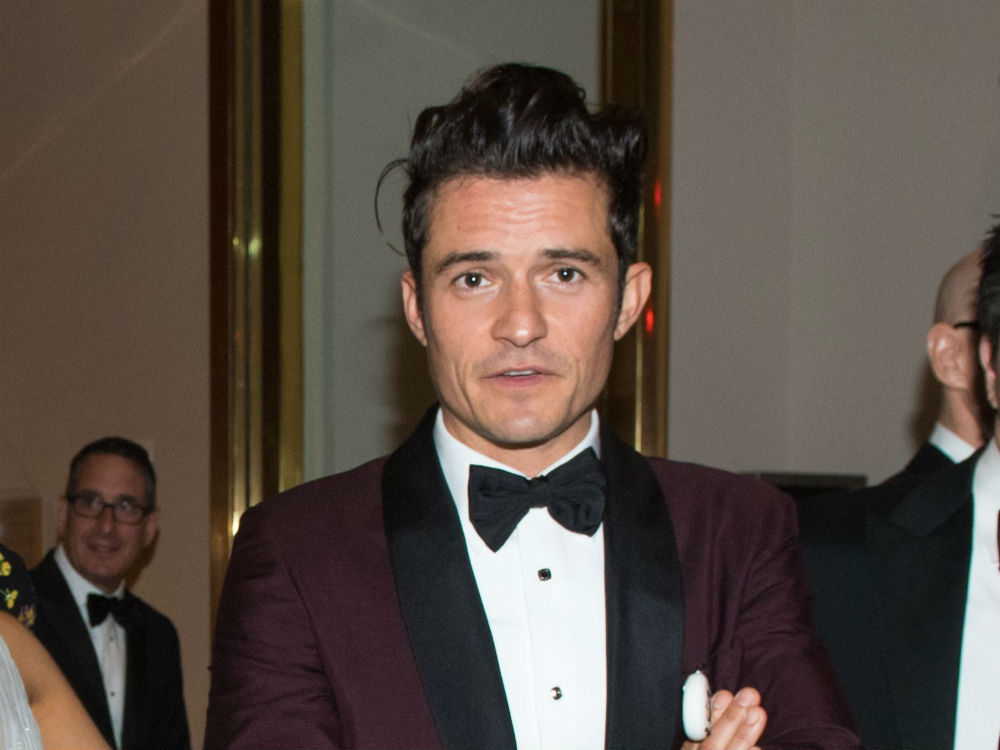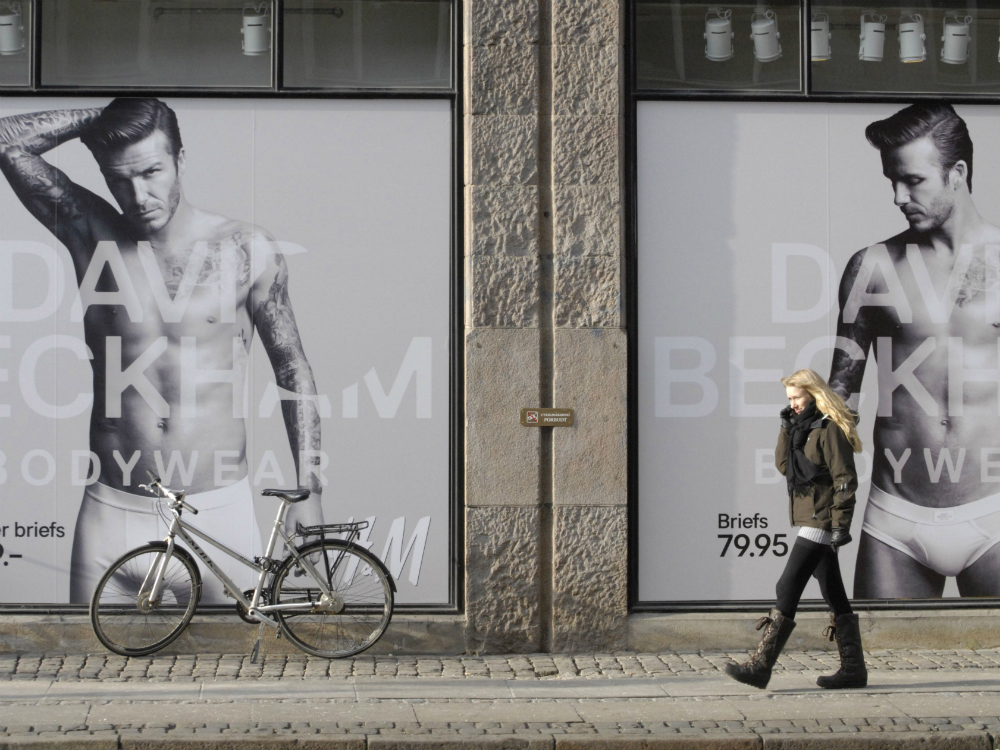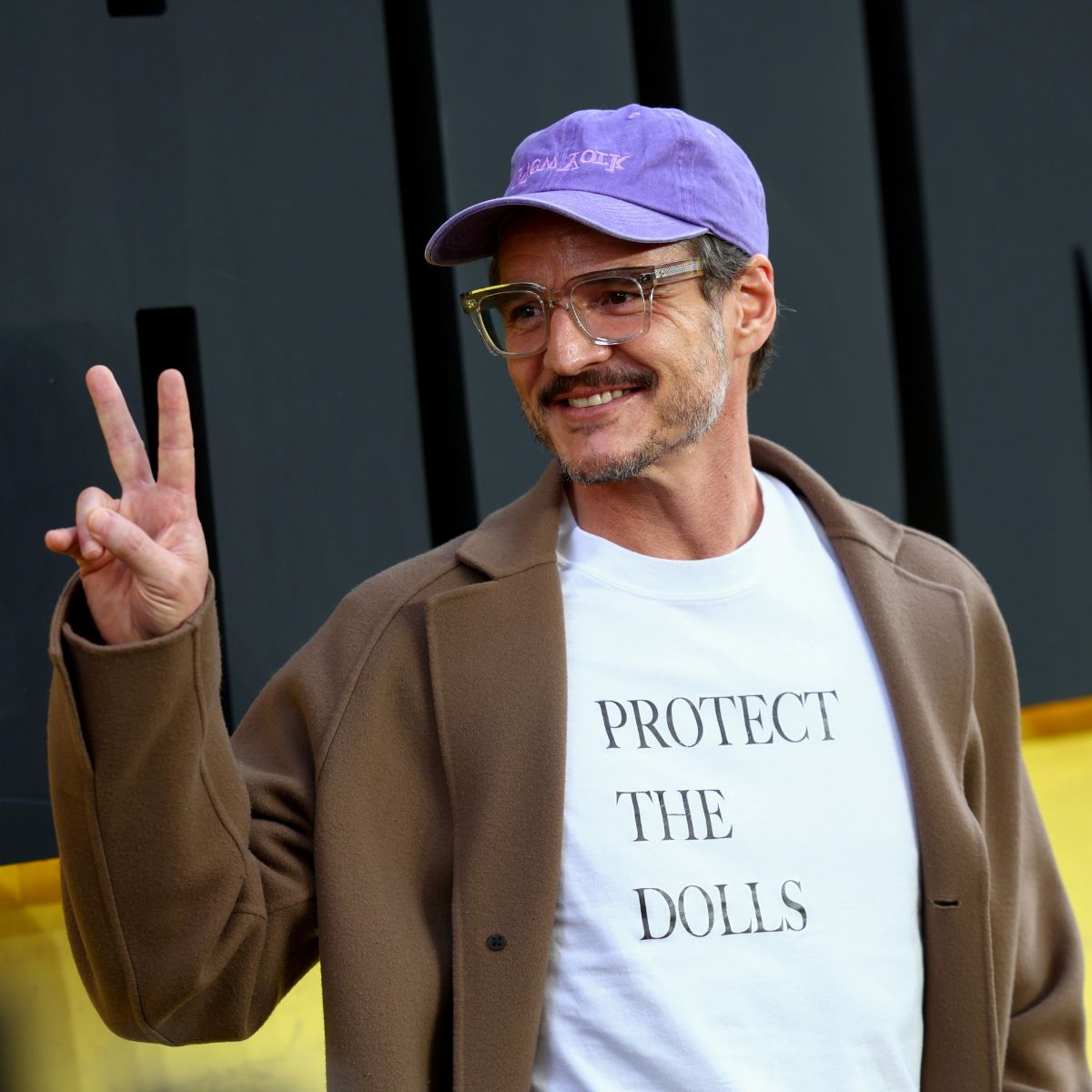Is it really ever OK to objectify men?
In light of *those* Orlando Bloom pictures

In light of *those* Orlando Bloom pictures
Orlando Bloom just sparked a furore when naked pictures of him paddleboarding on a public beach were put online. But is there a double standard at play here? Daisy Buchanan asks if it's ever OK to objectify men...
HURRAH FOR THE SUMMER! If you’re a straight woman, as soon as the sun comes out, so does the eye candy. Game of Thrones devotees can park up by the nearest gym and wait until a Kit Harington lookalike drops his towel. If you like something a little less chiselled, beaches from Miami to Margate are crawling with specimens of ‘Dad Bod’ – formerly fit men who clearly enjoy beer and ice cream. And if you can’t see anything you like, you can always fly to Dallas and visit its new restaurant, Tallywackers – dubbed ‘Hooters for women’, it’s staffed by topless men in tiny shorts.
We know: ‘Women fancy men!’ is about as big a news story as ‘Commuters prefer car to penny-farthing.’ But there has been a shift in the way we express our attraction – we’re becoming increasingly sexually and aesthetically focused. It’s not just your rude friends embarrassing you in bars with their innuendo; it’s happening in the workplace, in parks and on buses. Recently, I was in an office with a life-size cardboard cut-out of an oiled, pant-clad David Gandy. If we’d had to work with a similar image of Gandy’s Marks & Spencer-model colleague Rosie Huntington-Whiteley, there would have been a riot. In reality, the conversation we had about this was followed by an irony-free chat about Jamie Dornan’s chest. So, why are so many of us talking about men in a way in which we’d never want to hear anyone discussing women?
The truth is, reducing anyone to their body, and how that fits into your wishes for sexual gratification, is always sexist.
Kit Harington was explicit about this in a Marie Claire interview last July, when he said, ‘I don’t think it’s so different for men. When you’re a young, male actor in a certain role, people still ogle over you… But, like any young female actor, that’s not what I’m aiming for.’
You could argue that Harington is a powerful Hollywood star, and being asked about his sexiness doesn’t make him feel as powerless as we do when we walk past a building site wearing shorts. With abs like that, does he really care what we think about his craft? Of course he does! If I acquired Beyoncé’s body overnight, I wouldn’t want people to stop reading my writing because they’d rather look at pictures of me wearing a bikini instead. It’s a question of respect, and reducing men to their sexuality, in the way that they have historically reduced us, doubly diminishes everyone’s dignity. It’s not a win for feminism, just an extra helping of sexism. Part of the problem is that we lack a language for discussing desire. We want a world in which we acknowledge sex as glorious, and men and women feel confident about expressing erotic urges. What we’ve ended up with is a world where both sexes think the best way to do this is to yell, ‘Phwoar! I would’, while the object of their lust goes red and runs away.
Marie Claire Newsletter
Celebrity news, beauty, fashion advice, and fascinating features, delivered straight to your inbox!
However, there is a difference. When we objectify men, their economic and professional power isn’t reduced or threatened. In 2013, research by Equality Now showed that more than half of women were being discriminated against in the workplace, with just over one in ten experiencing sexual harassment in their jobs. Plus, the gender pay gap has widened for the first time in five years. Even among MBA graduates, where the gap narrows, men are awarded bonuses that are typically twice as much as their female counterparts’. Last year’s Sony email leak showed that Jennifer Lawrence was being paid less than her male co-stars, despite being the top box-office-grossing performer, male or female, of 2014.
Historically, women have been valued for their sexual and reproductive power. It’s relatively new for us to be in the workplace and our economic status is fragile, so when we’re objectified it sets us back. Men, on the other hand, are coming from a position of strength. We exist within a power structure focused on male supremacy – just look at a boardroom, the White House or the House of Commons. Objectifying a man is problematic in various ways, but it isn’t going to alter the power structure, whereas females are still valued in a binary way – are they sexually attractive, or not? As a growing minority of women, such as Theresa May, Nicola Sturgeon and Angela Merkel, enter these power spheres, their assumed lack of attractiveness is used against them. Men don’t typically experience that.

Professor Mary Evans of the London School of Economics’ gender institute explains, ‘For men, attractiveness is an add on, in the sense that it adds to whatever other competence they have. For women, attractiveness is it. There isn’t the same recognition of other strengths.’ Her ideas are echoed by writer Amanda Hess, who has explored how this affects athletes. ‘Unlike their under-watched, underpaid female counterparts, male athletes don’t need to be good-looking to get media coverage and corporate endorsements,’ she says. The most financially successful female athlete of 2015 isn’t tennis’ world number-one Serena Williams, but former beauty queen Maria Sharapova. Search Sharapova on Google and you’re shown model-portfolio pictures. Look for the highest-paid male athlete, Floyd Mayweather (who earns ten times what Sharapova earns, according to Forbes) and you get a list of titles and boxing achievements.
Chris Fromer, an advertising creative who has been in the industry for over 25 years, isn’t surprised. ‘Advertising is rife with sexism, and every decision comes down to money,’ he says. ‘We know men have more of it, so most products are targeted at them. And if you want to make a man spend, you show him a beautiful woman. Billions have been spent to maintain this status quo. The Diet Coke ad [pictured above] is one of a kind. I think it’s marketing genius, and makes lots of men uncomfortable, because it flips a situation and forces them to consider what it’s like to be a woman. But I also think there’s a dark, sexist truth at the heart of it. Sure, there’s something refreshing about a buff guy being used to sell to women, but he’s selling a “diet” product. The ad is still warning women that if they want to be on the same sexual playing field as the hot guy, they have to be body conscious and plan to lose weight.’
Another possibility is that men will envy the Diet Coke man and think, ‘I’d love it if women drooled over me. Therefore when I drool over women, it’s a huge compliment!’ But Fiona Elvines, operations co-ordinator at Rape Crisis, says, ‘Women are coping daily with a threat of rape, which men aren’t… while men might find [objectification] annoying, it doesn’t have that scary meaning.’ Women are socialised to worry, and fear the worst about attention from male strangers. We hope that most men would never dream of threatening a woman, and of course there have been instances where women have attacked men, but author Margaret Atwood expressed it best: ‘Men are afraid that women will laugh at them. Women are afraid that men will kill them.’
Ultimately, we still don’t have sexual, social or economic equality – and making men feel like pieces of meat is not the way to reach it. Everyone deserves to be treated with dignity, and if we fail to do this, we send out a message that says we’re happy to live in a world in which everyone is valued entirely for their sexual capital. But as long as Kit Harington’s chest isn’t causing him to be paid less than his female counterparts, and Hollywood hackers aren’t threatening to ‘shame’ him by leaking nude images, I don’t think he can complain too much
The leading destination for fashion, beauty, shopping and finger-on-the-pulse views on the latest issues. Marie Claire's travel content helps you delight in discovering new destinations around the globe, offering a unique – and sometimes unchartered – travel experience. From new hotel openings to the destinations tipped to take over our travel calendars, this iconic name has it covered.
-
 How the slogan t-shirt became this season's must-have - and why it's more than just another trend
How the slogan t-shirt became this season's must-have - and why it's more than just another trendNot just another Nineties throwback
By Clementina Jackson
-
 How are Trump’s tariffs affecting the fashion industry?
How are Trump’s tariffs affecting the fashion industry?The fluctuating situation in the US is having very real consequences
By Rebecca Jane Hill
-
 Here's every character returning for You season 5 - and what it might mean for Joe Goldberg's ending
Here's every character returning for You season 5 - and what it might mean for Joe Goldberg's endingBy Iris Goldsztajn